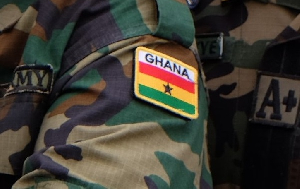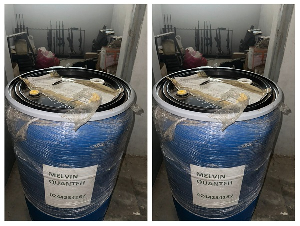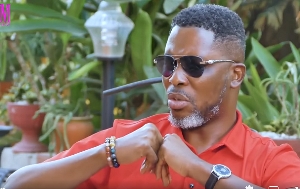04:51 a.m. May 08, 1999 Eastern By Manoah Esipisu
ADDIS ABABA, May 8 (Reuters) - The Dutch government said on Saturday it intended to cut off aid to 60 countries as part of a plan to target its overseas development budget more effectively.
Eveline Herfkens, the Dutch minister for development cooperation, told a conference of African finance ministers in Addis Ababa that her government wanted to reduce the number of countries to which it gave aid although the total volume of lending would not be reduced.
``Focusing the aid relationship on a smaller number of countries and sectors is necessary to assure the effectiveness and quality of the Dutch aid effort,'' Herfkens told ministers.
The three-day conference convened by the U.N. Economic Commission for Africa (ECA) was due to end on Saturday.
Herfkens said much of the West's aid to the developing world had been ineffective in the past and donors as well as aid recipients had to take responsibility for this failure.
``Donors have an awful record,'' she said. ``We have been micro-managing, we have been extremely erratic, we have been tying our aid (to trade) in a way which is extremely corruption-prone.''
Dutch aid would now target the poorest countries and would depend on the quality of ``governance'' and of social and economic policies, she said.
The countries that now qualified for structural bilateral aid were listed as Bangladesh, Bolivia, Burkina Faso, Eritrea, Ethiopia, Ghana, India, Macedonia, Mali, Mozambique, Nicaragua, Pakistan, Sri Lanka, Tanzania, Uganda, Vietnam, Yemen, Zambia and Zimbabwe.
Herfkens proposed to enter bilateral aid arrangements with South Africa, Egypt and the Palestinian territories. She said annual per capita income in South Africa was above $925 but was unevenly distributed. Programmes were required to help the disadvantaged segments of the population.
In Egypt and the Palestinian territories, Herfkens said poverty levels were still high.
In a letter to the Dutch parliament obtained by Reuters on Saturday, Herfkens said she planned a temporary freeze on aid to Ethiopia and Eritrea if they did not halt their year-old border war.
She added that the status of Pakistan, Zambia and Zimbabwe would be reviewed after a year because of the economic uncertainties in those countries.
Herfkens told reporters that among the African countries struck off the aid list were Kenya, Namibia, Senegal, Ivory Coast and Algeria.
Herfkens said the plan still needed parliamentary approval.
04:51 a.m. May 08, 1999 Eastern By Manoah Esipisu
ADDIS ABABA, May 8 (Reuters) - The Dutch government said on Saturday it intended to cut off aid to 60 countries as part of a plan to target its overseas development budget more effectively.
Eveline Herfkens, the Dutch minister for development cooperation, told a conference of African finance ministers in Addis Ababa that her government wanted to reduce the number of countries to which it gave aid although the total volume of lending would not be reduced.
``Focusing the aid relationship on a smaller number of countries and sectors is necessary to assure the effectiveness and quality of the Dutch aid effort,'' Herfkens told ministers.
The three-day conference convened by the U.N. Economic Commission for Africa (ECA) was due to end on Saturday.
Herfkens said much of the West's aid to the developing world had been ineffective in the past and donors as well as aid recipients had to take responsibility for this failure.
``Donors have an awful record,'' she said. ``We have been micro-managing, we have been extremely erratic, we have been tying our aid (to trade) in a way which is extremely corruption-prone.''
Dutch aid would now target the poorest countries and would depend on the quality of ``governance'' and of social and economic policies, she said.
The countries that now qualified for structural bilateral aid were listed as Bangladesh, Bolivia, Burkina Faso, Eritrea, Ethiopia, Ghana, India, Macedonia, Mali, Mozambique, Nicaragua, Pakistan, Sri Lanka, Tanzania, Uganda, Vietnam, Yemen, Zambia and Zimbabwe.
Herfkens proposed to enter bilateral aid arrangements with South Africa, Egypt and the Palestinian territories. She said annual per capita income in South Africa was above $925 but was unevenly distributed. Programmes were required to help the disadvantaged segments of the population.
In Egypt and the Palestinian territories, Herfkens said poverty levels were still high.
In a letter to the Dutch parliament obtained by Reuters on Saturday, Herfkens said she planned a temporary freeze on aid to Ethiopia and Eritrea if they did not halt their year-old border war.
She added that the status of Pakistan, Zambia and Zimbabwe would be reviewed after a year because of the economic uncertainties in those countries.
Herfkens told reporters that among the African countries struck off the aid list were Kenya, Namibia, Senegal, Ivory Coast and Algeria.
Herfkens said the plan still needed parliamentary approval.












